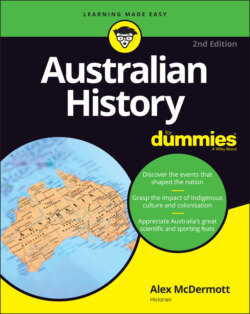Читать книгу Australian History For Dummies - Alex McDermott - Страница 25
The Postwar Boom Broom
ОглавлениеProsperity unleashed a new generation — the postwar baby boomers — onto the world, coinciding with a social revolution in the 1960s. This younger generation had grown up in an era of prosperity and increasing material affluence — an experience quite unlike the Depression and war years in which their parents had reached maturity. The Beatles, miniskirts and tie-dye psychedelia — you have the 1960s to thank for them. The 1960s also spawned a series of social movements, including:
Vietnam War protests: Many in the baby-boomer generation refused point-blank to serve as conscripts or soldiers in the Vietnam War, which Australia had entered in 1962.
Calls for the end of the White Australia Policy: This policy was aimed at excluding non-whites from immigration into Australia (under the old social homogeneity argument or, as Labor minister Arthur Calwell unfortunately joked, the argument that ‘Two Wongs don’t make a White’.) By the 1960s, the policy was becoming increasingly odious to newly independent non-white nations. The policy was progressively dismantled from 1966.
Campaigns for civil rights for Aboriginals: Inspired by the civil rights movement for African Americans in the US, Indigenous Australians began agitating to have all constitutional bars against their full recognition as Australian citizens removed.
Women’s rights campaigns: Liberated by access to a recently developed contraceptive (‘the pill’) and ‘no-fault’ divorce, Australian women began calling for equal rights, including equal payment for work done, the right to work after getting married or having children, and the removal of old segregation rules (such as those that fined pub owners for serving women in the front bar of pubs) that were starting to appear, quite frankly, a little archaic.
See Chapter 19 for more on the changes wreaked during the 1960s and 1970s in Australia.
